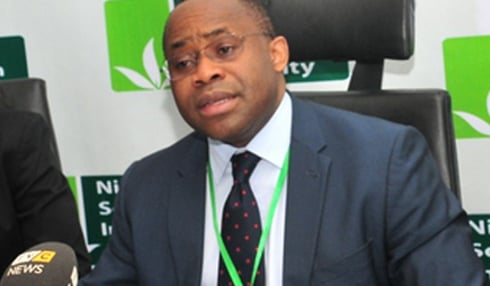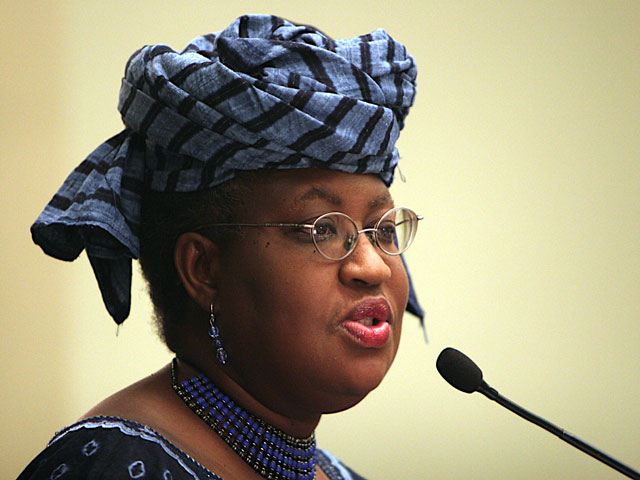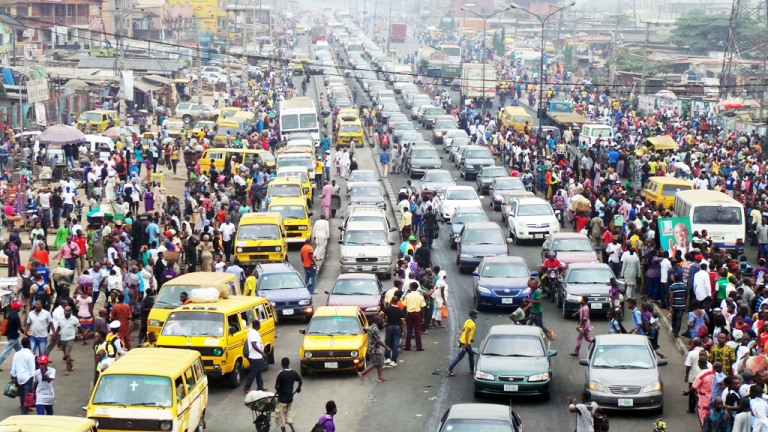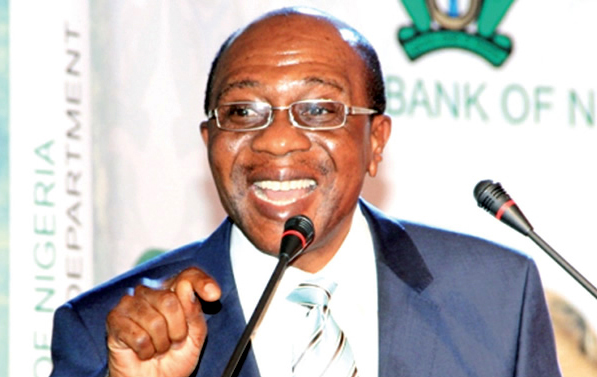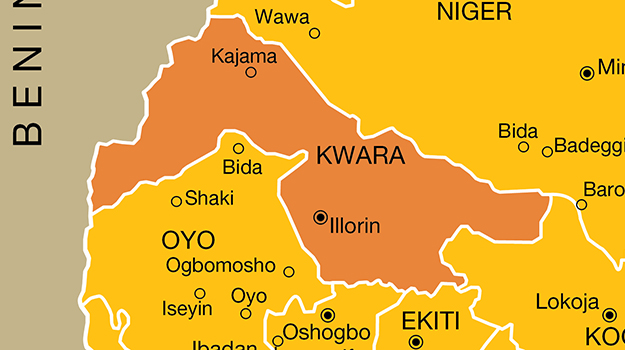If anyone needed a good hint on President Muhammadu Buhari’s likely economic policy direction, he has given one by declaring that there will be “no more devaluation of the naira”. It is the clearest signal yet that the exchange rate policy may not be formulated by the monetary policy committee of the Central Bank of Nigeria (CBN). It is going to be determined, effectively, from Aso Rock. Thus, the exchange rate may have no direct connection to the interplay of demand and supply in the currency market. Is this good or bad? Actually, every policy has its good and bad sides, but I honestly don’t know how well Buhari’s pronouncement will work out. Things could even get messier.
Listen carefully to Buhari: “The naira has been devalued. It used to be around 160, and now it is hovering around 200 and above and I don’t think it is healthy for us to have the naira devalued further. That’s why we are getting the central bank to make modifications in terms of making foreign exchange available to essential services, industries, spare parts, essential raw materials and so on – but things like toothpick and rice, Nigeria can produce enough of those. We don’t need to give our hard currency on that but those who insist on having toothpick from Europe or from China, instead of using Nigerian toothpick, they can go and source their foreign exchange.”
Let’s break it down to pieces. “The naira has been devalued.” True. But we would not be discussing this if the problem has been solved. “It used to be around 160, and now, it is hovering around 200.” Correct. But crude oil used to be $80 too and it is now $40, so we are short of forex inflow since oil is our major export. “Things like toothpick and rice, Nigeria can produce enough of those. We don’t need to give our hard currency on that.” Fantastic. But we are not yet producing enough locally. What then are the overall plans and incentives to encourage local production of rice and toothpick — beyond starving the importers of forex? Is forex ban an incentive? Anyone?
And finally. “Those who insist on having toothpick from Europe or from China… they can go and source their foreign exchange.” Beautiful. But 90% of our forex comes from oil — and oil belongs to the government. Government is practically the sole earner, sole owner and sole supplier of forex. If we were industrialised, we would not be importing this much. Forex demand would not be this overwhelming. If we were exporters of petrol, rice, toothpick, chocolate and steel, we would have diverse source of inflow. CBN would be a little player in the forex market. Therefore, sourcing forex elsewhere is not yet feasible. Nigerian importers can’t apply to the US government for dollars.
Advertisement
There is an ongoing demonisation of the importation of toothpick and rice. I object. This is trade. Trade has its own value chain. There are import duties. Bank make margins on loans to traders. They pay taxes. There are jobs for haulage operators. They pay levies. Sellers make their margins. Therefore, if you want to stop imported rice or toothpick, you must come up with an import-substitution programme to create bigger and better value. The programme must factor in the time it will take to build the factories, the gestation, the infrastructure and the incentives. We can’t start producing sufficient rice and toothpick “with immediate effect”. It doesn’t work like that.
My favourite example is cement. Not so long ago, we were heavily dependent on import. In 2005 or so, President Olusegun Obasanjo came up with a self-sufficiency plan. Incentives were rolled out. The only companies allowed to import cement were those with visible local investments. A timeline was developed. Today, Nigeria is a net exporter of cement. That is how it works. Obasanjo did not just say “those who insist on having cement from China can go and source their foreign exchange”. Investors won’t start producing rice and toothpick overnight simply because of a forex ban. It is a business decision, not some national service. Let’s be clear on that.
By the way, trading is a major economic activity in Nigeria, at least for now. Denying genuine traders access to forex will hurt the economy. The value chain will be jeopardised. Jobs will be lost. The GDP will suffer. We will all feel the pain. Import duties are, meanwhile, a major source of revenue too, so federation revenue will also be hit. If we want to ban importation of rice and toothpick, there should be an alternative on the ground. If Nigerians eat 10 million bags of rice per day and produce only 6 million, the shortfall of 4 million must be imported. If you deny the rice importer forex, there will be scarcity and the price will go up. Who will be hurt? All of us, not just the importers.
Advertisement
If you care little about the basics of economics, you probably read Buhari with little interest. But for investors, traders, bankers, economists, economy watchers and analysts, this was the major pronouncement they had been waiting for since May 29. They got plenty hints all along — such as the retention of fuel subsidies and the NNPC maintaining that the refineries will not be sold but will instead be repaired and run by government. In effect, the foundations of the petroleum industry bill (PIB) — designed to open up the oil industry by devolving and divesting state control — are now, at best, wobbly. We also now know that the exchange rate will be politically determined.
Clearly, Buhari does not want the naira to take any further beating. There may be a nationalist tinge to it, to protect “national pride and heritage”. Maybe he also worries about the impact on the masses. To be honest, devaluation is not a pleasurable experience for a country that survives on imports. Prices of goods and services will head for the skies. Only export-led economies may benefit from devaluation as an inflow of dollars could translate to trailerloads of the local currency for exporters. But Nigeria is import-dependent and devaluation can indeed make life more miserable. But we are damned either way. I sympathise with Buhari in this Devil vs Deep Blue Sea game.
Except he changes his mind, we should expect the naira to officially exchange for N197:$1 for a while, “by fire by force”. However, we should expect the parallel market rate to be at anything between N210 and N250. If things get worse — say crude oil price falls to $20 per barrel as predicted — we should expect the parallel market to keep falling, perhaps heading for N300 because the official dollar crumbs it feeds on will also dry up. The CBN will be forced to keep meeting the official demand at N197. Since we don’t print dollars, how can the CBN perpetually keep the exchange rate at N197? Very simple: by perpetually depleting the foreign reserves until they vanish.
When the reserves run dry, we would not be able to import as we like again, except we run to — look away now — the International Monetary Fund (IMF) for emergency loans. Yes, IMF helps troubled economies with short-term funds to make ends meet. But they don’t throw their money just like that. The good, old IMF will ask us to — look away again — devalue the naira and remove subsidies! They want to be reassured that our finances are well run to pay back their money. Alternatively, we can declare a National Day of Fasting and Prayers so that crude oil can start selling for $120 again. That way, we would have enough forex to defend our national integrity, whatever.
Advertisement
If I may quickly chip this in, when we supply forex at N197 to only importers of “essential” goods and services, there are other issues involved. One, arbitrage and round-tripping can set in. Clever guys will look at the black market rate and opt to make quick profit. They know how they do it. Two, the favoured importers could price their goods at black market rate to maximise profit. So Nigerians will be buying goods at parallel market rate, whereas the importers bought forex at official rate. So the inflation we are trying to run away from will still set in. We are clearly between a rock and a hard place. There are no easy ways out, to be fair. I really sympathise with the president.
Meanwhile, this naira that I am looking at cannot be on its feet at N197:$1 for much longer. Something will eventually give. Either we deplete the reserves to keep the rate or devalue the naira as the “essential demands” keep piling up. Fortune could well smile on us over oil price. Or we can finally choose to liberalise. Obasanjo came to power in 1999 with a statist mindset. It took him a while to embrace liberalisation. The economy exploded in appreciation. Something tells me Buhari will soon accept that West Germany has swallowed up East Germany. It may take him a couple of years and plenty of mistakes, but I’m so certain he will get the memo someday.
AND FOUR OTHER THINGS…
NOISE MAKERS
President Buhari has given us another shocker: that it is civil servants that do the job but ministers make all the noise. Is that the impression he has been given by those permanent secretaries he has been working with since he assumed office? Is that why we have not had a cabinet since? Buhari should commission a research into “a day in the life” of Nigerian civil servants. He should investigate the owners of choice property in Abuja. He should also investigate the processes by which money gets stolen from the system. Then we will discuss the matter again. Stunning.
Advertisement
TSA TSUNAMI
My belief that ‘nothing or no-one is absolutely good or bad in life’ found further evidence in the implementation of the treasury single account (TSA). On the one hand, we will have a handle on all government revenues in the interest of transparency. Also, banks will stop feeding solely on public funds. On the other hand, the economy will be further squeezed as the already troubled credit system is jeopardised by lack of cash — with the transfer of over N1.1 trillion to the TSA. However, credit to Godwin Emefiele, CBN governor, for moving quickly to bridge the liquidity gap. Kudos.
Advertisement
SARAKI ON TRIAL
Has Bukola Saraki finally come to the end of the road? Since he decided to run for senate president against the wishes of key APC figures, the battle line had been well designed. Indeed, President Buhari has refused to have a one-on-one meeting with him. The two men are practically not on speaking terms. I knew something would give along the line. Now that the Code of Conduct Bureau has finally got something on him, we may be nearing the end game. But getting rid of Saraki is one thing, replacing him with the preferred choice is another entirely. Dicey.
Advertisement
BURKINA SUFFER
So in 1993, Gen. Ibrahim Babangida was forced to “step aside” as military president of Nigeria after sustained public protests. He set up an interim government and left his ally, Gen. Sani Abacha, behind. Abacha later did a coup. And so in 2014, President Blaise Compaore of Burkina Faso was forced to step down amid widespread protests. An interim government was installed and his ally, Gen Gilbert Diendere, remained behind. Diendere has now carried out his own coup. What is this thing about African leaders? Why are we eternally locked in crises and power struggles? When shall Africa be free? Questions.
Advertisement


